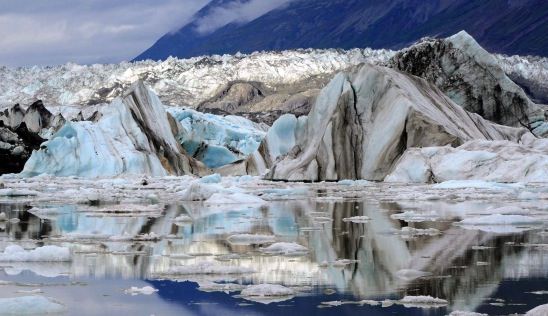A new report shows that glaciers near Alaska are shrinking rapidly, and climate change is causing this substantial melt. The loss of the tens of thousands of glaciers in Alaska and neighbouring British Columbia, Canada alone is deeply worrying, according to scientists.
Not only is this glacial melt accelerating, but it may spell a host of problems for humans, including the rise in sea-levels, dangers to marine life, water supply and agriculture.
Glaciers in British Colombia and America’s northern state of Alaska are losing 20 to 30 percent of what is melting annually from the Greenland Ice Sheet.
This amounts to about 40 to 70 gigatons per year or about 10 percent of the annual discharge of the Mississippi River.
“The global decline in glacial and ice-sheet volume is predicted to be one of the largest contributors to global sea-level rise during this century,” the report said.
Brian Menounos, a geography professor at University of Northern British Columbia and one of the scientists involved in cross-border, multi-agency research into glacial loss, said he was concerned about the melting speed of the glaciers.
“We’ve seen an acceleration of the melt from the glaciers. When we start to look at some of these individual mountain ranges, we’re seeing some rates that are truly exceptional,” Menounos said.
There are 200,000 glaciers on Earth with 17,000 in British Columbia.
Agencies/Canadajournal
 Canada Journal – News of the World Articles and videos to bring you the biggest Canadian news stories from across the country every day
Canada Journal – News of the World Articles and videos to bring you the biggest Canadian news stories from across the country every day



